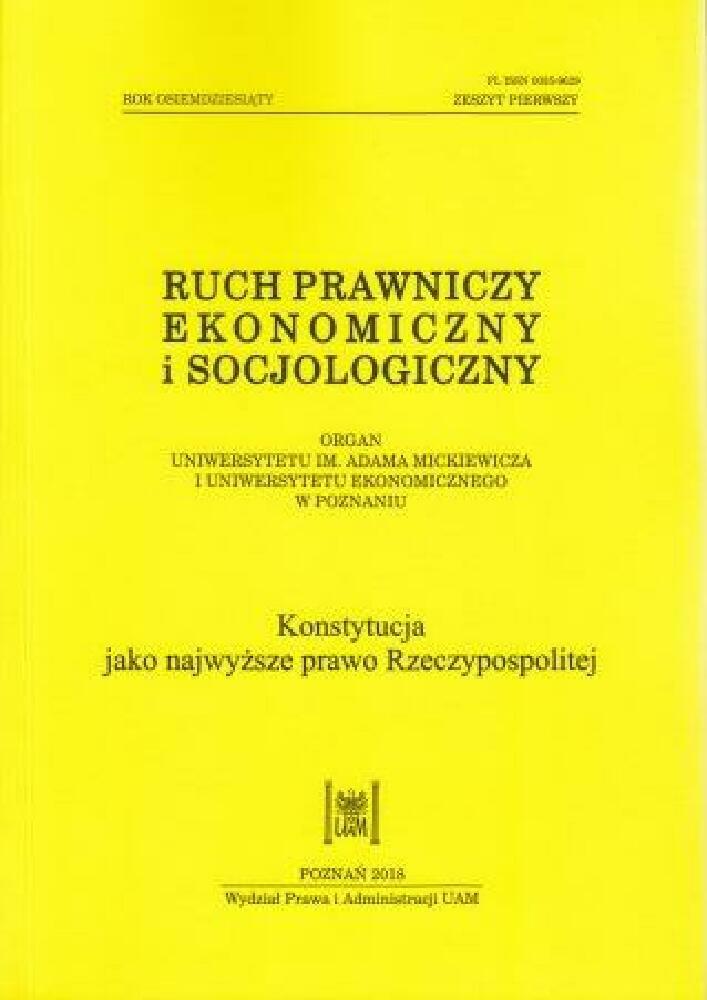Abstract
The aim of this paper is to present axiological rsearches that were going on during the work on the Polish Constitution in the early years of transformation. One of the fundamental discussions at the initial stage of the work on the Constitution was a discussion that often took the form of a dispute about values. One of the elements of the dispute was the problem of dependence between ius and lex. In this context, references were made to the European legal heritage and concepts such as European identity or the common European legal heritage. The main challenge for all post-socialist countries was the need to ‘decode’, or explain the concept of ‘common legal heritage’. This concept became a peculiar founding myth in the new democracies of Central Europe. In this context, the Venice Commission (formed in 1990) played an extremely important role by helping countries to discover what evolved from the common European legal tradition to becomea European standard, and consequently, a model for concrete legal solutions. In the general category, therefore, the so-called European standard was perceived as a central value and a reference to it was an important verifier in the process of reviewing the internal legal system and, particularly, in the process of constitutional changes, especially on issues such as the rule of law, separation of powers, or the independence of the judiciary and judicial control over the constitutionality of the law. Despite disputes concerning specific political regulations, the consensus that prevailed was that the rules which referred to the ‘axiology’ of the previous system could not pretend to constitute an element of the European legal heritage and thus could not serve as a basis for the drafting of a new Polish Constitution.
License
Copyright (c) 2018 WPiA UAM

This work is licensed under a Creative Commons Attribution-NonCommercial-NoDerivatives 4.0 International License.




